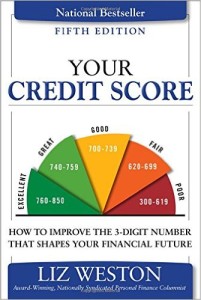Dear Liz: I’m frustrated with my FICO scores. At one point they were well into the 800s and now they languish in the 720 to 730 range. I have no debt — no mortgage or car loan — and fully pay off two credit cards monthly. I have millions (fact, not bragging) in assets with no liabilities. I don’t anticipate taking any loans but it is so odd to me. Why is this?
Answer: You likely had at least one installment loan, such as a mortgage or car loan, when your scores were near the top of FICO’s typical 300-to-850 scale. You can still have good scores without an installment loan — and you do — but the highest scores require you to have a mix of credit types.
You might be able to add a few points to your scores by paying attention to your credit utilization — the less of your credit limit you use, the better. Adding another card or two may ding your scores in the short run but also could add points long term.
Or you can just be happy as you are. As long as you continue to use your cards responsibly, you’ll continue to have scores that are “pretty enough for all normal purposes” — in other words, that will get you good rates and terms should you decide to apply for additional credit.
 The Consumer Financial Protection Bureau today ordered Equifax and TransUnion to pay more than $23 million in restitution and fines for deceiving consumers about the usefulness and actual cost of credit scores they sold to consumers. Regulators said the bureaus also lured customers into expensive subscriptions when people thought they were getting free scores.
The Consumer Financial Protection Bureau today ordered Equifax and TransUnion to pay more than $23 million in restitution and fines for deceiving consumers about the usefulness and actual cost of credit scores they sold to consumers. Regulators said the bureaus also lured customers into expensive subscriptions when people thought they were getting free scores.
